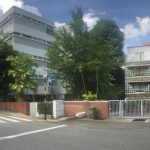DBS supports IRAS in digital and contact-free payment for greater convenience
As part of the nation’s drive to adopt digital contact-free payments, DBS Bank has been collaborating with government agencies such as the Inland Revenue Authority of Singapore (IRAS) to integrate APIs (application programming interface) into the tax authority’s operating framework to digitalise payments.

IRAS now offers PayNow QR as a payment option on its myTax portal for all major tax types, including Individual Income Tax, Corporate Income Tax, Property Tax and Goods and Services Tax, to provide greater convenience for both individual and corporate taxpayers. Currently, these tax types comprise more than 80% of IRAS’ total tax collections, with a taxpayer base of more than three million individuals and businesses.
With PayNow QR implemented, taxpayers can enjoy a more seamless and convenient experience when making tax payments. To pay by PayNow QR, all they need to do now is to use their SingPass/CorpPass to log into IRAS’ myTax portal, scan the PayNow QR code with any of the digital banking mobile apps from the nine participating PayNow banks (see Annex A), and complete the payment in real-time. Apart from the convenience of the scan and pay function via IRAS’ myTax portal, taxpayers can also benefit from instant settlement and real-time status updates of their outstanding tax balance.
DBS supports IRAS in efforts to enhance customer payment journey
Table of Contents
Mr Raof Latiff, Group Head of Digital, Institutional Banking, DBS Bank, said, “Singapore continues to make steady headway in fulfilling its ambition to become a digital payments society with statutory boards such as IRAS taking the lead to implement secure and instant payment solutions that provide greater convenience to individual and corporate taxpayers. The QR code has become increasingly ubiquitous and we look forward to supporting IRAS in continued efforts to enhance their customer payment journey and drive broader adoption of QR payments locally.”
Ms Ang Sor Tjing, Director of IRAS’ Revenue and Payment Management Branch, said, “IRAS firmly believes in leveraging technology to redefine our taxpayers’ experience. By partnering with banks to push out different digital payment methods, IRAS hopes to offer taxpayers a wider variety of payment options so as to cater to each taxpayer’s unique needs, preferences and circumstances, and as such encourage prompt tax payment.”
As DBS supports IRAS, DBS employees make better use of convenience
Some DBS employees have also taken the opportunity to make payment for their income tax through IRAS’ new PayNow QR option.
“I have always opted to pay for my income tax via digital means because of the convenience it brings about as I’m always on the go. Last year, I used the bank transfer option which required me to key in my Tax Reference number. But with PayNow QR, the process is now truly seamless with the scan and pay option, making my taxpaying experience even more convenient than before. I’m definitely going to opt for this going forward and will encourage my friends and family to do so too,” shared Ms Patricia Loh, Associate at DBS Bank.
DBS supports IRAS by giving PayNow as an option for businesses to receive WCS
DBS and IRAS have been working together over the last two years to digitalise payments across the tax authority’s various tax types. IRAS first introduced PayNow as an option for businesses to receive Wage Credit Scheme(WCS) payouts in March, resulting in a 20 per cent reduction in cheque volumes to-date. Before the implementation of PayNow, about half of WCS-eligible businesses, many of which are small and medium-sized enterprises (SMEs), chose to receive their payouts via cheques. Before the implementation of PayNow, about half of WCS-eligible businesses received their payouts via cheques. For the next phase, both parties are collaborating to introduce PayNow QR for stamp duty payments in 2021.
Under the WCS introduced in Budget 2013 and extended in Budget 2015, the Government co-funded 40% of wage increases from 2013-2015 and 20% of wage increases from 2016-2017 given to Singapore Citizen employees who earned a gross monthly wage of up to $4,000. Only employers are eligible for the co-funding. In Budget 2018, it was announced that the WCS would be extended for three more years (2018, 2019 and 2020) to support businesses embarking on transformation efforts and encourage sharing of productivity gains with workers. Government co-funding was maintained at 20% in 2018. Subsequently, the co-funding ratio stepped down to 15% in 2019 and 10% in 2020. All other qualifying conditions will be unchanged.
Latiff says, “We are here with our customers for the long haul and see ourselves as more than just a bank, but as a tech solutions provider as well. While it may be easy to take the old pipes and replace them with new ones, what is more relevant is how we can help companies transform to provide effective solutions that are not only more efficient, but also provide a better customer experience.”
DBS continues to see a steady increase in individuals and corporates adopting PayNow as a payment solution, with the bank holding close to 40% of the market share by registration to date. DBS’ corporate clients contribute around half of the PayNow Corporate receipts in Singapore.
To help corporate customers transition to digital ways of work, DBS has carried out more than 50 online webinars to date, engaging close to 1,000 corporate customers.






